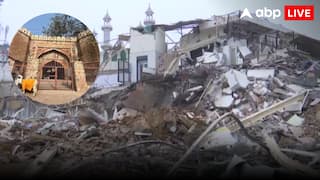Zionism, Nakba, Intifada, Kibbutz: Glossary Of Terms To Understand Israel-Palestine Conflict
Israel-Palestine Conflict: The Israel-Gaza war has dominated headlines and reports have been interspersed with terms that may not be familiar to all. We decode the terms related to the conflict

The Israel-Palestine conflict is one of the longest-standing conflicts that dates back to the 19th century and has witnessed tension and violence for decades, primarily due to territorial claims. The latest chapter in the bloody history between the two nations started after Palestinian militant group Hamas launched a brutal assault, its biggest in years, on Israel, firing over 5,000 rockets from Gaza, breaching the border to infiltrate and take civilians hostage.
Israel was quick to retaliate, pouncing on the Gaza Strip, launching a bombing campaign and cutting off electricity, food, and water to the enclave as it officially declared a "state of war". Over 4,000 lives have been lost on both sides.
That's not all as Israel has also been fighting a second front along its border with Lebanon as Iranian-backed militant group Hezebollah fired missiles at the country to express "solidarity" with Palestine.
READ | Palestine Is Looking At 'Heavy Power' India To Be A Mediator, Envoy Abualhayjaa Says
Amid an avalanche of news on the escalating Israel-Gaza war, media reports have been interspersed with names and terms that may not be familiar to all.
Here are some of the common names and terms related to the Israel-Palestine conflict and what they mean:
Hamas
Founded in 1987, Hamas is an Islamist political outfit and one of the two major parties in Palestine. Hamas, an Arabic word, means "zeal". Dozens of countries, including Israel and Western nations like the US and the UK, have designated Hamas and its military wing as a terrorist organisation.
Hamas, the outfit behind the recent conflict between Israel and Gaza, was founded by Sheikh Ahmed Yassin, a Palestinian cleric, following the first Intifida -- the Palestinian uprising against Israeli occupation of the West Bank, Gaza, and East Jerusalem.
Hamas took control of the Gaza Strip after defeating its rival political party, Fatah, in the 2006 election. The militant outfit receives a major chunk of its funds, weapons and training from Iran, according to a US State Department report.
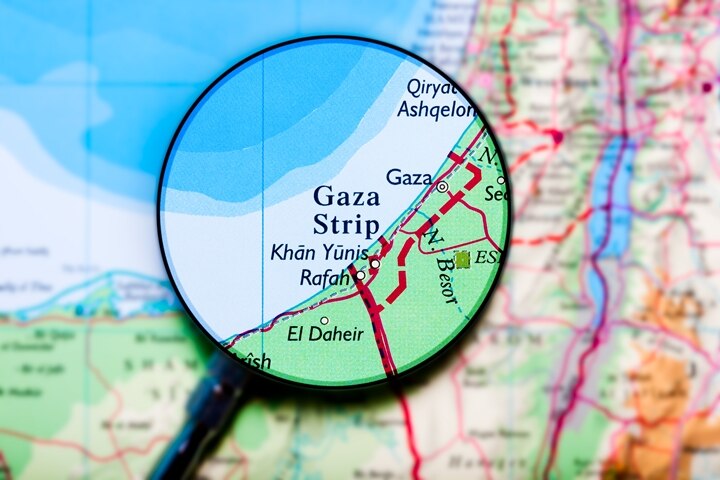
Gaza Strip
Gaza, one of the most densely populated places in the world, is a small rectangular strip of land that is mostly surrounded by Israel in the east and north, Egypt in the south and the Mediterranean Sea to the west. It is mostly occupied by around 2 million Palestinians and the region has a poverty rate above 50%.
The Gaza Strip was placed under Egypt administration after the 1948-1949 Arab-Israeli war. Israel took control of the area in 1967 after the Six Day War between Israel and its Arab neighbours (it is so called as Israel defeated the Arab powers within six days and took control of the West Bank and East Jerusalem).
In 2005, Israel withdrew its soldiers from the region and the Gaza Strip was handed over to the Palestine Authority. Israel has imposed an air, land and sea blockade on Gaza since 2006. Hamas took complete control of the Gaza Strip in 2007.
West Bank
A chunk of land bigger than the Gaza Strip, West Bank lies east of Israel and is home to nearly 3 million Palestinians. Israel took control of the West Bank following the 1967 Six Day War. The people of Palestine consider it illegally occupied land, as Israel has allowed Jews to settle in the area. Presently, there are around 500,000 Jewish settlers living there.
The West Bank is currently administered by three entities, as was decided upon according to the Oslo Accords. The West Bank is divided into three areas — one area is managed by the Palestinian Authority, another and a major chunk by Israel, and a third is under joint control until a permanent agreement is reached between the Palestine Liberation Organisation (PLO) and Israel.
Nakba
Nakba, meaning "catastrophe" in Arabic, refers to the mass displacement of Palestinians during and after the 1948 Arab-Israeli war that led to the creation of Israel. An estimated 7,60,000 Palestinians fled or were expelled. Palestinians observe May 15 each year as Nakba Day. It comes a day after Israeli Independence Day — May 14.
The term 'Nakba Day' was coined in 1998 by the then Palestinian leader Yasser Arafat, according to a DW report.
After the harrowing experience of the Holocaust in Nazi Germany during World War II, the United Nations General Assembly in 1947 passed a resolution paving the way for partition of Palestine into two states — one Jewish and one Arab. The Arab nations rejected the plan, leading to Jewish or Zionist militias launching a brutal attack on Palestinian villages. It led to nearly 800,000 Palestinians being expelled from their homes.
By the time the conflict ended, the new nation of Israel covered 78 per cent of Palestine. The remaining 22 per cent comprised West Bank, East Jerusalem, and Gaza. Between 1947 and 1949, the Zionist forces killed around 15,000 Palestinians while committing mass atrocities and destroyed some 530 villages.
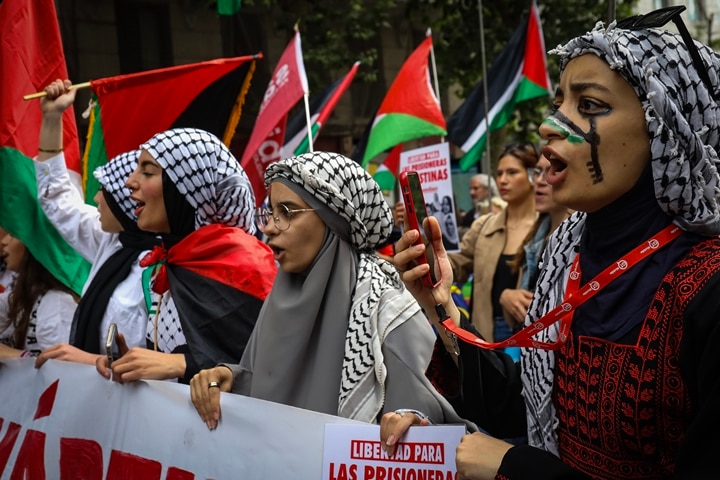
Zionism
Zionism is Israel's national ideology and was coined in 1980 by philosopher and author Nathan Birnbaum. In simple terms, Zionism is a nationalist ideology that called for the creation of a separate state for Jews and upholding of Jewish sovereignty in the land of Israel.
Theodor Herzl, an Austro-Hungarian Jewish journalist, is considered the "father" of modern political Zionism. He had formed the Zionist Organisation and advocated Jewish immigration to Palestine in a bid to form a Jewish state in 1896.
The Zionist movement gained momentum in the late 19th century amidst increasing anti-Semitism in Europe. The main aim of Zionists was to create a Jewish state in Palestine. The movement found support among Western European governments. The Arab nations see Zionism as a hangover of colonialism and racism aimed at appropriating Palestinian land.
Intifada
Intifada, which in Arabic means "shaking off" or "getting rid of" someone or something, refers to the two Palestinian uprisings against Israel — first in the late 1980s and the second in the early 2000s.
The first intifada in 1987 saw non-violent protests by Palestinians against Israel's occupation of the West Bank, the Gaza Strip and East Jerusalem. Initially, there were mass boycotts but soon chaos erupted as Palestinians started to attack Israelis using stones and Molotov cocktails. Many Palestinians also refused to work in Israel, pay taxes or buy Israeli products.
In retaliation, Israel soldiers launched a brutal attack on the demonstrators, imposing curfews and resorting to mass arrests and torture to crack down the uprising. Over 1200 Palestinians and 180 Israelis were killed in the First Intifada. It also saw the formation of Hamas, which was founded by Sheikh Ahmed Yassin with support from the Muslim Brotherhood.
The conflict ended in 1993 after then Israeli Prime Minister Yitzhak Rabin and Palestine Liberation Organization chief Yasser Arafat signed the Oslo Accords, which saw the formation of the Palestinian Authority.
The second intifada was much bloodier, witnessing deaths of 1,000 Israelis and 3,200 Palestinians. There were a multitude of reasons behind the second uprising — collapse of peace talks, a visit by Israeli politician Ariel Sharon to Israeli-occupied areas of East Jerusalem that was seen as "provocative" by Palestinian leaders and firing of Israeli soldiers on Palestinian protesters.
This time Palestinians resorted to suicide bombings in buses and hotels and rocket attacks even as Israel pushed back with air strikes. The conflict ended in 2005. Israel withdrew from Gaza that year and Hamas took control of it two years later, establishing itself as a major player.
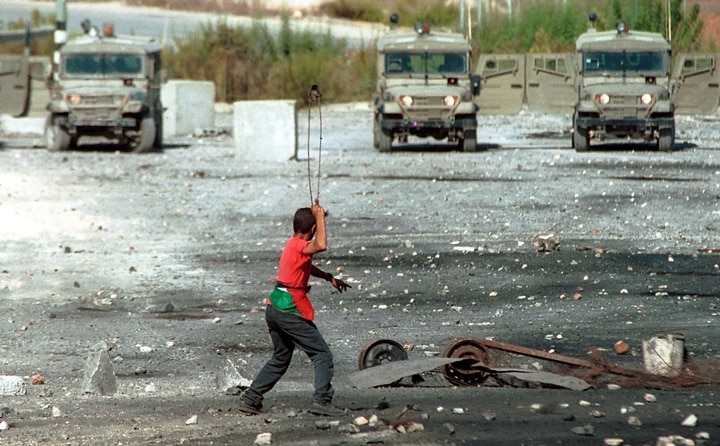
Kibbutz
Kibbutz, which means "gathering" in Hebrew, is a type of small agricultural settlement centred around farms owned collectively by the residents. The Kibbutz settlements, which usually consist of 100-1,000 residents, are the worst affected in the recent wave of violence by Hamas.
They consist of around 3 per cent of Israel's population but hold wide significance and several of Israel's politicians and military leaders are from the community. Kibbutzniks make up around 15 per cent of Israel's Knesset, its parliament.
The kibbutz residents or kibbutzniks have their roots in socialist and Marxist ideas about collective living and played an important role in the formation of the Zionist movement.
Iron Dome
Recently, videos of dark skies illuminated by exploding balls of light have flooded social media amid Israel's war with Hamas. It is nothing but Israel's famed Iron Dome at work. The Iron Dome is an aerial defence mechanism that intercepts incoming short-range rockets fired by enemies.
The Iron Dome, built with help from the United States, can block around 85-90 per cent of missiles. The system has three components — radar that detects the threat, a command-and-control system that processes the information and activates the interceptor, which is basically a missile that destroys the incoming rocket.
Two-State Solution
Several countries and global leaders, including India and Israeli PM Benjamin Netanyahu, have advocated for a two-state solution to end the conflict between Israel and Palestine. The "two-state solution" entails creating an independent Israel and Palestine states.
The proposal for a "two-state" solution was first made in 1947 by the United Nations. As per the proposal, Israel would be given around 55 per cent of the land that had made up the erstwhile Palestine and the rest to the Arab state. This, however, was not agreed to by the Arabs.
On the other hand, Palestinians are also in favour of a "one-state solution" that would merge Israel, the West Bank, and the Gaza Strip into a single nation. However, in that scenario Arab Muslims would outnumber Jews and end Israel as a Jewish state.
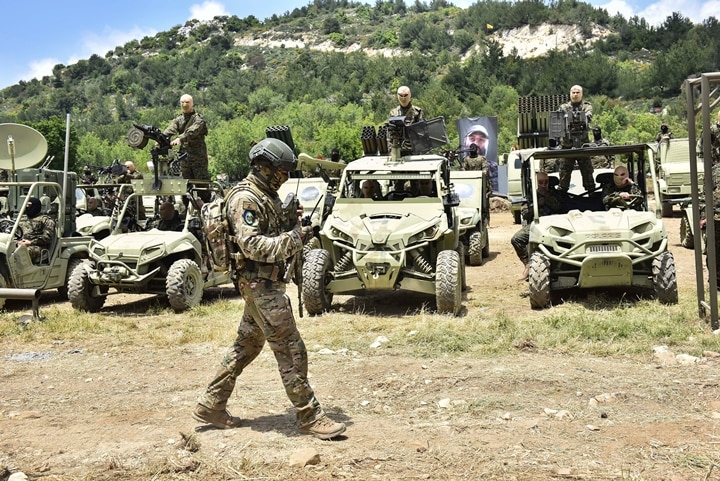
Hezbollah
Hezbollah, meaning "The Party of God", is a political outfit and militant group based in Lebanon that has been backed by Iran and Syria. The outfit was formed in 1982 to tackle Israel's occupation of southern Lebanon. The militant wing of Hezbollah has been designated as a terrorist group by the United States and many other countries.

















